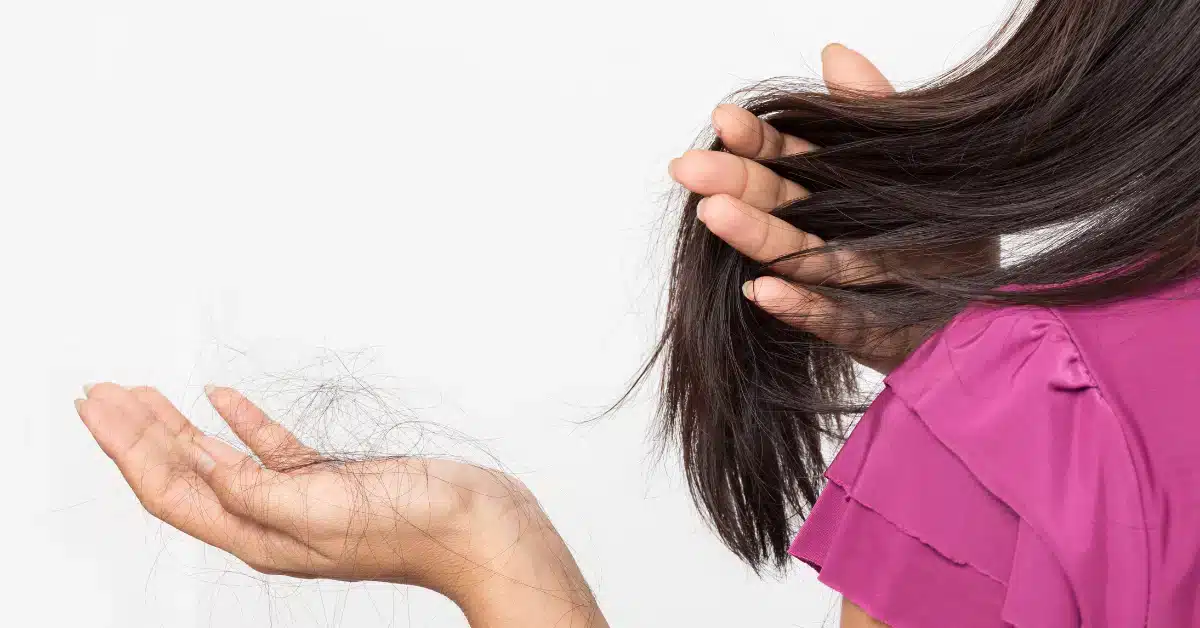Vitamins For Hair Loss in Women
Female Pattern hair loss, Hyperthyroidism, and PCOS, hair loss in women may have several causes.
These may also include taking an improper diet.
According to the American Academy of Dermatology, 40% of women will have visible hair loss by the age of 40.
Vitamins and minerals play an important role in hair growth and maintenance.
In this article, we will discuss the essential roles of vitamins for hair loss in women.
Vitamin A
Vitamin A is essential for cell growth and regeneration, including hair cells.
It helps in the production of sebum, which is a natural oil that moisturizes the scalp and keeps hair healthy.
However, excessive intake of vitamin A can lead to hair loss.
Therefore, it is essential to consume vitamin A in moderation.
The recommended daily intake of vitamin A for women is 700 micrograms per day.
Biotin
Biotin, also known as vitamin B7, is essential for Keratin production.
It is a protein that makes up hair, skin, and nails.
Biotin also helps to improve the elasticity of hair, which prevents breakage.
It can be found in egg yolks, nuts, and whole grains.
The recommended daily intake of biotin for women is 30 micrograms per day.
Vitamin B12
Vitamin B12 is important for the production of red blood cells.
These cells are responsible for carrying oxygen to hair follicles.
A deficiency in vitamin B12 can lead to hair loss, fatigue, and weakness.
Vegetarians are at higher risk of vitamin B12 deficiency, as the vitamin is mainly found in animal products.
Therefore, they need to consume vitamin B12 supplements or fortified foods.
The recommended daily vitamin B12 for women is 2.4 micrograms per day.
Vitamin C
Vitamin C is an antioxidant that aids in producing collagen, an essential component of hair.
Collagen helps to strengthen hair and prevent breakage.
Vitamin C also helps to improve blood circulation in the scalp, which ensures that hair follicles receive enough nutrients and oxygen.
The recommended intake of vitamin C intake for women is 75 milligrams per day.
Vitamin D
Vitamin D is vital for bone health but also plays a role in hair growth.
It helps to stimulate hair follicles, which promotes hair growth.
It also helps reduce scalp inflammation, which can lead to hair loss.
The recommended daily vitamin D intake for women is 600-800 IU daily, depending on age.
Vitamin E

Vitamin E is an antioxidant that helps improve scalp blood circulation.
It also helps to reduce inflammation, which can lead to hair loss.
Vitamin E is commonly found in nuts, seeds, and vegetable oils.
The recommended daily vitamin E intake for women is 15 milligrams per day.
Prenatal vitamins for hair loss in women

Prenatal vitamins are advised for pregnant women to ensure their sufficient nutrient intake.
They are not specifically designed to address hair loss.
However, women might experience reduced hair loss after taking prenatal vitamins.
Apart from Vitamin B and D, other minerals for overall during pregnancy are,
Iron
Iron is important for producing Hemoglobin, which carries oxygen to the hair follicles.
An iron deficiency can result in hair loss, fatigue, and weakness.
Women are at a higher risk of iron deficiency due to menstruation.
Iron can be found in poultry, red meat, fish, and fortified cereals.
The recommended intake of iron for women is 18 milligrams per day.
Calcium
Calcium is responsible for developing hair follicles and promoting hair growth during pregnancy.
It also helps regulate hormones that can impact hair health.
Adequate calcium intake is important for overall fetal development and can support healthy hair growth in pregnant women.
The recommended daily calcium intake is 1000-1300 mg for women.
Zinc
Zinc is important for protein production, which is necessary for hair growth.
It also helps regulate oil production in the scalp, preventing hair loss.
Zinc can be found in red meat, poultry, and fortified cereals.
The recommended daily intake of zinc for women is 8 milligrams per day.
Conclusion
Vitamins and minerals support healthy hair growth.
Prenatal vitamins, which are high in many of these nutrients, have been reported to help reduce hair loss in some women.
However, it’s important to consult your physician to identify the cause of hair loss and the best course of treatment.
A balanced diet, regular exercise, and proper hair care can also help support healthy hair growth in women.
Frequently Asked Questions
What is the best vitamin for female hair loss?
There is no one vitamin for female hair loss. Vitamins like A, B7, B12, C, D, and E aid in hair regrowth. Taking adequate amounts of these vitamins in your diet can help reduce hair loss and promote growth.
Do vitamins help with hair loss?
Yes, vitamins play a role in hair rejuvenation and growth. Vitamins like B7, B12, and C can help cell regrowth and promote collagen production. They together help in reducing hair loss and also promote hair growth.
What should I take for female hair loss?
You can take vitamins and supplements to reduce hair loss. Doctors may also recommend Minoxidil to treat female hair loss. It’s best to speak with a healthcare provider to determine the underlying cause of female hair loss and the appropriate treatment.
Is vitamin D good for female hair loss?
Vitamin D intake may help support healthy hair growth. It reduces inflammation on the scalp and stimulates hair growth. If you take the recommended intake of vitamin D, it may help with female hair loss.
Which deficiency causes hair loss?
A deficiency of vitamins and minerals can cause hair loss. Vitamin deficiencies that cause hair loss include A, B, C, D, and E. Another deficiency that can cause hair loss is iron and calcium deficiency.
WowRx uses only high-quality sources while writing our articles. Please read our content information policy to know more about how we keep our content reliable and trustworthy.






